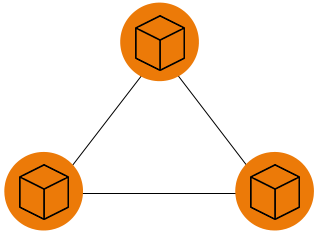S3 object storage is a secure and reliable way to store large amounts of data, and it provides easy access to those data.
Different ways of storing data
There are three main types of storage: file storage, block storage, and object storage.
File storage

In file storage, data is organized like physical documents in a filing cabinet or drawer. Information is stored as individual pieces inside an electronic file. To access a file, the computer needs to know its location. This information is called metadata, and it tells the computer where to find the file.
This is the oldest and most widely used storage system for direct and network-attached storage. You have probably used one yourself. Every time you access documents stored in files on your computer you use file storage. It is very flexible and can store anything. It is good for storing an array of complex files and allows you to navigate through them quickly.
However, there is a limit to how many files you can access at once. File systems cannot scale by simply adding more capacity, they must be expanded by adding new servers.
Block storage

Block storage is a data storage system that breaks data into smaller pieces, or blocks, and stores them separately. Each block has a unique identifier that allows the storage system to easily locate and retrieve the data when needed. This approach allows for more efficient use of storage space and enables the system to store data in different environments, such as Linux or Windows.
When a user requests information, the underlying software retrieves the necessary blocks from different environments and reassembles them into a complete file or document. This process ensures that the information is always available and accessible, even if some parts of the data are stored on different servers or devices.
Block storage does not rely on a single path to data, like file storage, so information can be accessed more quickly. Each block is independent and can be divided to be accessed by another operating system, providing users with complete freedom to customize. This method is reliable, easy to use, and manage, making it suitable for businesses that conduct large transactions or deploy large databases.
However, block storage has a high cost and limited metadata processing capabilities, which must be handled at the application or database level. This adds another thing for developers and system administrators to worry about, but it is still a valuable option for those who need fast access to their data.
Object storage

Object storage is a flat structure that stores files in a single repository instead of in folders or on servers. These files are called objects, and each object has a unique identifier to help the system find it. Metadata is also stored with each object, including information about its age, security, and access controls.
Metadata can be detailed, storing information such as when a video was recorded or which camera took a photo. This information is used by the operating system to retrieve data and distribute workloads more efficiently. Administrators can use this metadata to enforce policies for reliable data retrieval.
Object storage requires a simple HTTP API. It is cost-effective, as you only pay for what you use, and it is easily scalable, making it well-suited for public repositories. The system works with static data and can scale up to large volumes thanks to its flexibility and flat structure. Objects contain enough information to allow the application to quickly find data, as well as being suitable for storing unstructured data.
However, there are some disadvantages. Objects cannot be modified once created, so if you need to make changes, you must create a new object. Additionally, object storage does not work well with traditional databases, as writing objects can be slow and it can be more difficult to create an application that uses the object storage API compared to file storage.
Benefits of object storage
Why is S3 object storage a better choice for businesses?
-
Cost-effective: Customers only pay for the space and time they use.
-
Scalability: Easily scale up or down as needed, or automatically.
-
Data reliability: Minimal risk of data loss.
-
High availability: Access information anytime, anywhere, from any device.
-
Security: Data is encrypted and access restricted to authorized users.
-
Ease of management:. User-friendly interface.
Cloud4Y object storage
Cloud4Y provides a solution for backups, documents, archive data, and content distribution with low core capacity load. Guaranteed 99.9999% reliability and availability. No charges for incoming traffic. Unlimited storage scaling.



